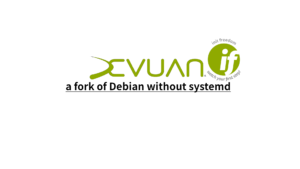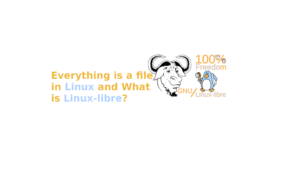In order to power the world’s servers, desktops, smartphones, switches, routers, and everything in between, the Linux kernel 6.1 is now available. Linus Torvalds is pleased with some early pull requests after blasting developers for late submissions, and he promises to keep strict rules in place to keep the merge window calm as the holiday season approaches.
A large group of engineers and enthusiasts from all over the world work together to develop and maintain the Linux kernel. While many people contribute to the Linux kernel as part of their day jobs, there are also people who do it in their spare time, voluntarily, and according to their own terms.

Let’s look more closely at what those awesome people have been doing lately.
Features of 6.1
Mainline (experimental) support for Rust, the “multi-paradigm, general-purpose programming language” gaining traction across the open-source landscape, is a significant addition to Linux 6.1. Despite its small size, this initial batch of bring up fulfills the goal of allowing kernel developers to write kernel code in Rust.
Multi-Generational Least-Recently-Used is another new feature in Linux kernel 6.1. (aka MG-LRU; though this is not yet enabled by default). This memory-conscious feature, according to in-kernel documentation, “…optimizes page reclaim and improves performance under memory pressure” — hey, better performance is always welcome.

A “bunch of performance improvements” have been made to the Btrfs file system in Linux 6.1, including a “outstanding FIEMAP speed improvement,” a new block group tree to speed up mount on large filesystems, more io uring integration, and tweaked sysfs exports.
The EXT4 file system gains from a flurry of fixes, cleanups, and tuneups, the latter of which includes no longer attempting to prefetch block allocation bitmaps for read-only file systems. In addition, the EROFS file system is now able to share duplicated data across file systems.
With Linux 6.1, a ton of new sound hardware support is available, including preliminary work for sound support on Apple Silico, support for AMD Rembrandt with the Sound Open Firmware (SOF), and audio support for the Mediatek MT8186 SoC anticipated to be used in new Chromebooks.
Additionally, a number of older Android smartphones, including the Sony Xperia 1 IV and the Samsung Galaxy E5, E7, and Grand Max, can now run on the mainline Linux 6.1 kernel. Input driver for the PinePhone keyboard case is also now available. Also, the kernel XPad input driver now supports several new devices, including Xbox One Elite paddles on the original Elite and Elite series 2.
The Hori Fighting Commander ONE gamepad (including Xbox mode), the 8BitDo Pro 2 wired controller, and a slew of Wooting keyboards, including the Wooting One, Two, Two HE, and 60HE, are also supported.
Kernel 6.1 also includes the typical foundation-laying for next-generation CPUs and GPUs. In 6.1, there will be new driver code for the AMD platform management framework on future Ryzen chips, plumbing for Intel’s ‘Meteor Lake’ 5nm chips, and continued work on Intel Arc Graphics DG2/Alchemist.
Previously there were a few notable additions on the Intel side of the Error Detection and Correction (EDAC) driver updates that have been submitted and merged for the Linux 6.1 merge window. With Linux 6.1 and later, hardware errors should be decoded more quickly for Intel hardware platforms using the “skx common” EDAC driver code. The Intel EDAC driver has relied on the firmware decoder, which employs ACPI techniques, to try and identify hardware errors up until this point. But it turns out that using the driver’s error decoder is quicker and will now be the preferred method going forward. Instead of using the ACPI firmware queries, the driver decoder obtains information directly from the memory controller registers and MCA bank registers. Additional “i915” kernel graphics driver changes from Intel engineers had also been submitted for Linux 6.1. These changes include updated GuC firmware version handling, additional DG2/Alchemist Arc Graphics work, and additional Meteor Lake “MTL” enablement for the successor to Raptor Lake. And hopefully those problems have been solved in this update.
Obtaining Linux 6.1
Currently, Linux 6.1 is available for download as source code, which you can manually compile on your preferred distribution. Unable to do that? Wait for the maintainer of your distro to package the half-graft instead.
Ubuntu does not package new Linux kernel releases and distribute them to users as updates, in contrast to some distros (like Arch). As a fixed-release distribution, new kernel releases only arrive in new releases, though LTS releases occasionally receive new kernel updates that are backported from more recent releases.
Wrapping Up
Overall, Linux kernel 6.1 introduces a number of new features and enhancements that improve the performance and security of Linux-based systems. These enhancements make Linux an even more powerful and adaptable operating system, capable of meeting the needs of a diverse set of applications and users. For Ubuntu-based distributions, you can try installing Linux 6.1 from Canonical’s mainline repository. It is NOT advised to do this. There is no warranty, no support, and no testing to make sure there are no bugs in the mainline builds. At your own risk, use.









